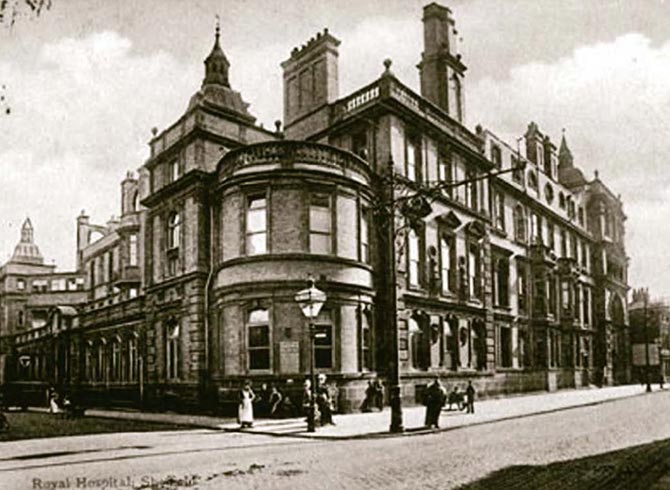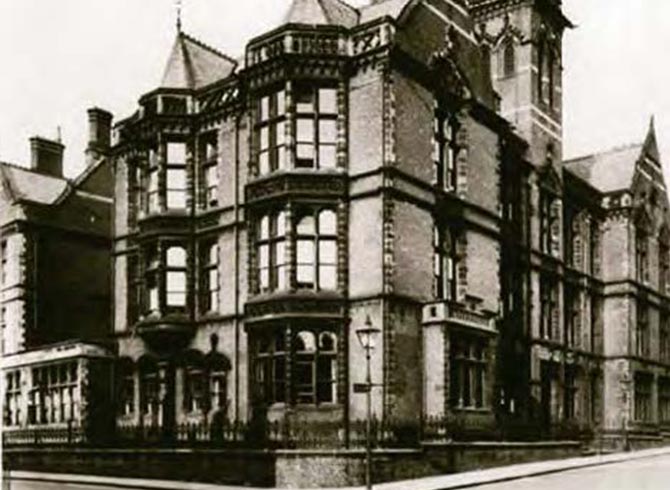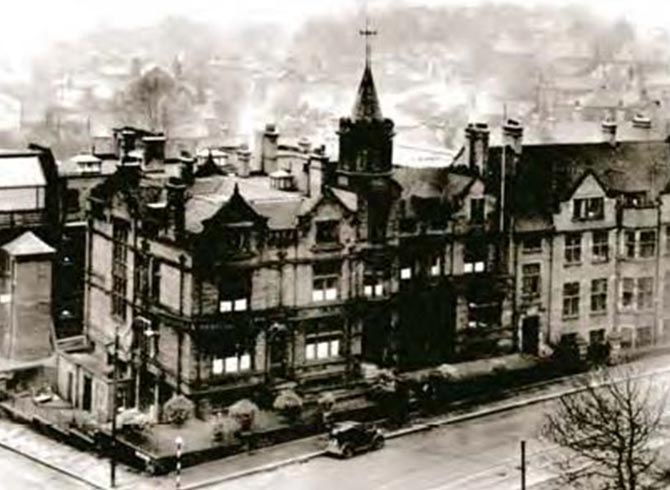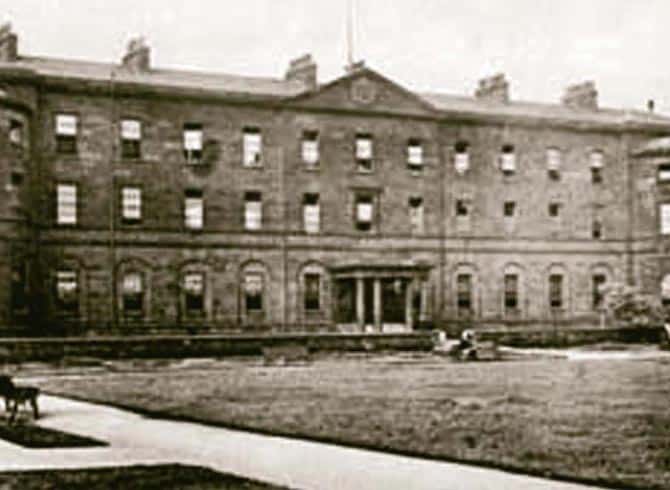



Why do we exist?
The 3rd July 1919 will forever be carved into the history of Sheffield. On this momentous day the Westfield Health we know today was founded. It started life as the grandly named Sheffield Consultative and Advisory Hospitals Council, but to most, we were simply known as The Sheffield Hospitals Council.
The reason for this formation was simple; to support Sheffield’s four hospitals; The Royal, The Royal Infirmary, The Children’s and Jessop Hospital for Women during the aftermath of the First World War.
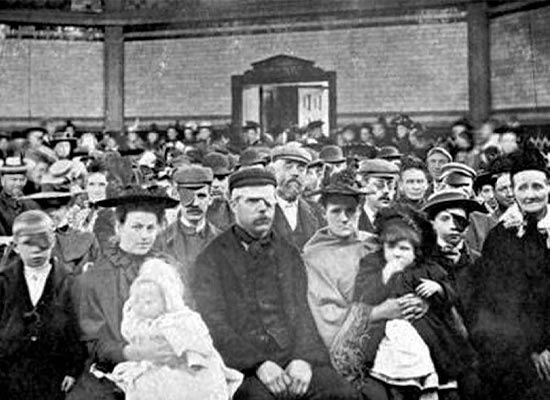
Royal Infirmary Hospital waiting room
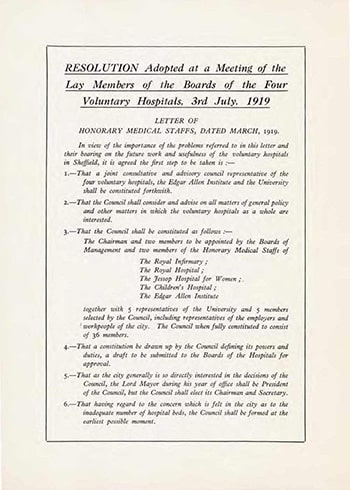
Times were desperate and the outlook incredibly bleak. There was a chronic shortage of accommodation and with no means to modernise or re-equip the wards, we stepped in to help rebuild the hospitals’ finances. And with this first step, our journey began.
The ‘Penny in the Pound’ scheme
Fred Osborn’s role in our story is a pivotal one. On 9th April 1920 as a member of The Sheffield Hospitals Council, he suggested a ‘Penny in the Pound’ scheme.
Fred’s innovative idea was quickly embraced and became legendary within the founding healthcare industry.
For every pound of an employee’s pay, a penny would contribute to the hospitals’ finances in return for free hospital treatment, and their employers would contribute a third of any money raised.
The scheme is born




The scheme launched in April 1921 and was an immediate success, raising almost a million pounds for the hospitals in the first six years. However humble a person’s earnings, their contributions guaranteed them treatment that they otherwise couldn’t afford.
The scheme was one of the largest and most successful in the country, and over the 27 years it ran, raised nearly five million pounds for the four hospitals.
Fred’s contribution was priceless, and many generations of the city are forever in his debt.






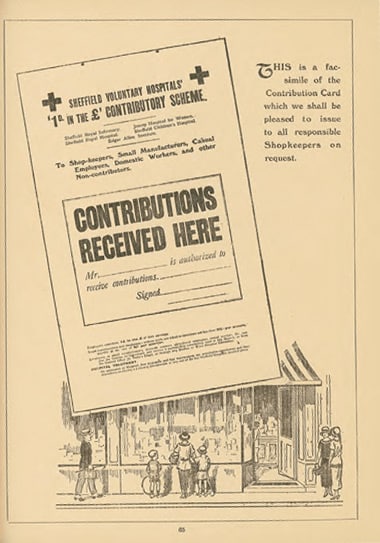
A record of 1923 -
Sheffield Joint Hospitals Council
The Great Depression swept through the nation in the early 1930s and Sheffield didn’t escape its impact. Unemployment rose to high levels but even in these challenging times, many people of the city still loyally contributed to the scheme from their wages.
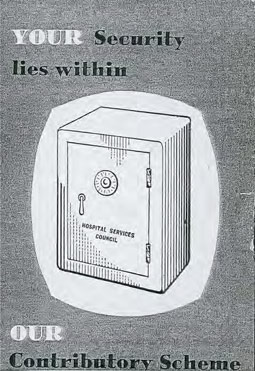
Uncertain times
Uncertain times
It was impossible to escape the looming threat of war; events in Europe made the chances of the unthinkable become an unavoidable reality.
Through these unsettling times we continued to provide contributions to the hospitals. One of the ways we helped raise money, as well as spirits, was to organise local village fetes to encourage contributions and bring people together.





World War Two began

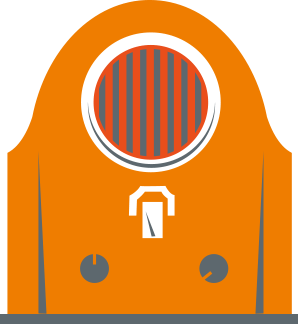
At 11.15am on the 3rd September 1939, Neville Chamberlain broadcast to the nation that Britain and France had declared war on Nazi Germany. Even with war declared and the future uncertain, we were steadfast in our belief that the ‘Penny in the Pound’ scheme must continue to serve the people of Sheffield no matter what difficulties lay ahead.
The Blitz

The 12th December 1940. A cold, crisp and clear night in Sheffield. Suddenly air raid sirens shattered the uneasy silence. This first devastating air raid was followed by two more, taking place on the 13th and 15th December 1940. These days would collectively be forever known as the Sheffield Blitz.
The impact was immediate and forever changed the face of the city. Nearly 450 high explosive bombs, landmines and incendiaries were dropped on the city, and the hospitals were put under unrelenting strain from the heavy casualties.



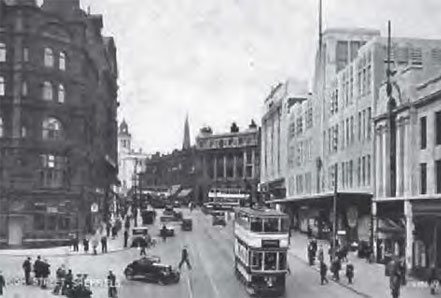

Sheffield High Street, before and after the Blitz
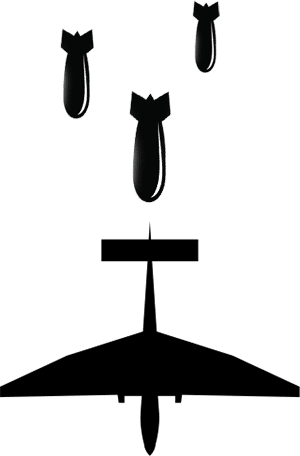
The strength of the city’s people was severely tested in these dark times, but their bravery shone through with six George Medals awarded to citizens for their acts of heroism during the raids.
In the midst of all this despair, our financial support had never been so vital. We were able to fund a much-needed new maternity unit at Jessop’s Hospital for Women after the hospital suffered severely from a heavy air raid.



Our ambulance service carried 38,411 patients to the nearest hospitals

We funded two ambulances in 1942 which transported patients to the city’s hospitals, and to and from nursing homes in Sheffield. When the Blitz hit, the ambulances were put under incredible pressure and were vital in helping the city soldier on.
A total of 191,788 miles travelled

A wartime festive spirit
As well as delivering 9,000 Christmas gifts each year, we donated Easter eggs to patients in the Sheffield Voluntary Hospitals. When Sheffield went through the first of the air raid attacks in 1940, we made sure that the donations made it to the patients, offering a glimmer of joy in such traumatic times.
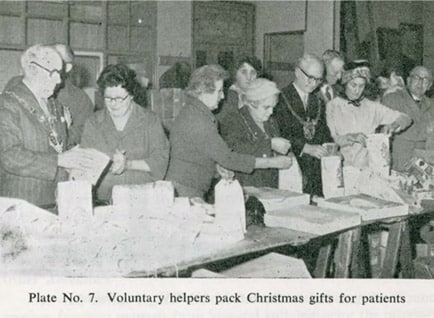
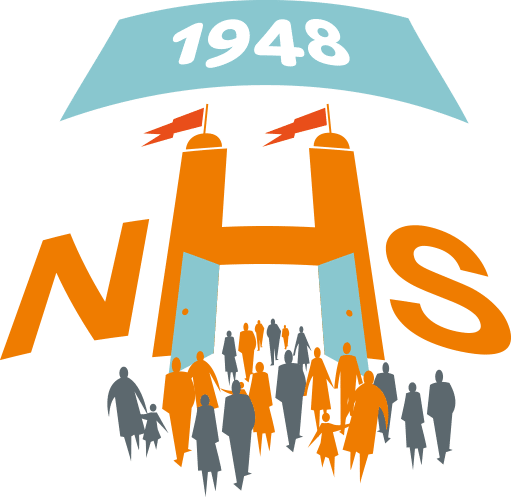






On 5th July 1948, the NHS was born with the aspiration to make good healthcare available to all, regardless of a person’s wealth.
Society was still weary and recovering from the devastation of war, but this was the first time that our future was potentially threatened.
The introduction of the NHS made many people sit up and ask the question: “How can the ‘Penny in the Pound’ scheme continue when the NHS offers free healthcare?”
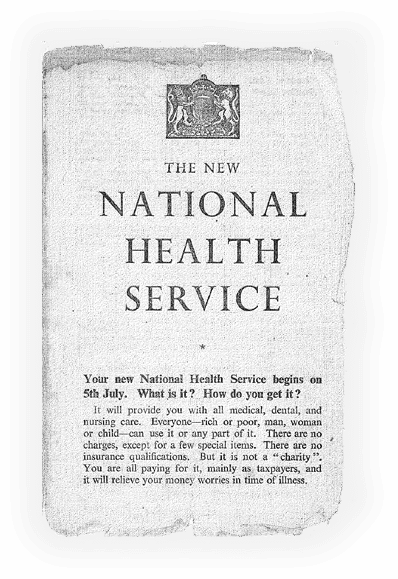
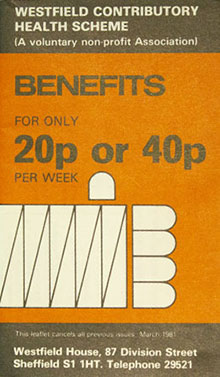
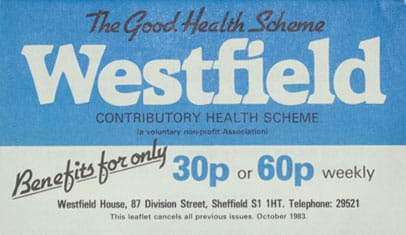
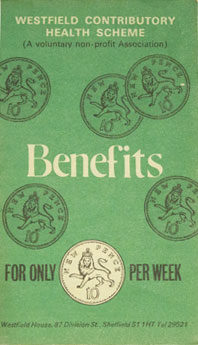
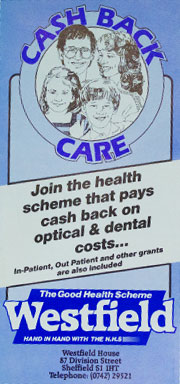
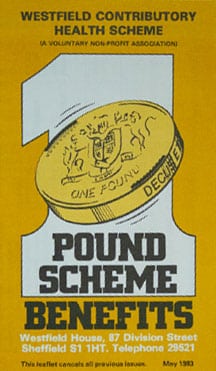
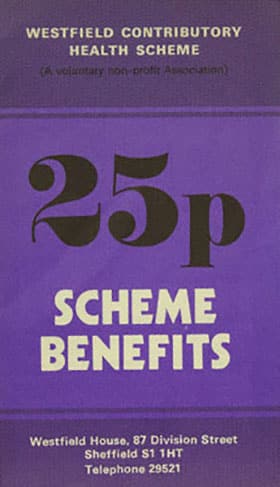
The changing world of healthcare
Many schemes like ours, throughout the country, were unable to adapt to this new landscape and closed their doors. Though our contributions fell, we adapted to change and rose to the challenge of carrying on and being there for the people who relied on us.
The end of an era
We provided significant financial support to the city’s hospitals prior to the NHS, but with this now under the NHS Act, it was decided that the ‘Penny in the Pound’ scheme would close.
The scheme changed many lives during its 27 years of activity, giving the people of Sheffield access to hospital services they otherwise wouldn’t have had. The success of the scheme was beyond the dreams of those who launched it in 1921.
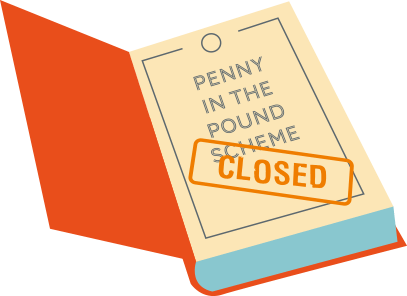

Supporting the NHS
We adapted to the introduction of the NHS by creating a ‘Special Purposes Fund’, providing amenities that weren’t covered by the NHS to patients and hospital staff.
The people of Sheffield were naturally concerned that they’d lose our excellent service, which they’d loyally contributed to and had come to depend on. So we introduced a much-needed recovery benefit to contributing members.
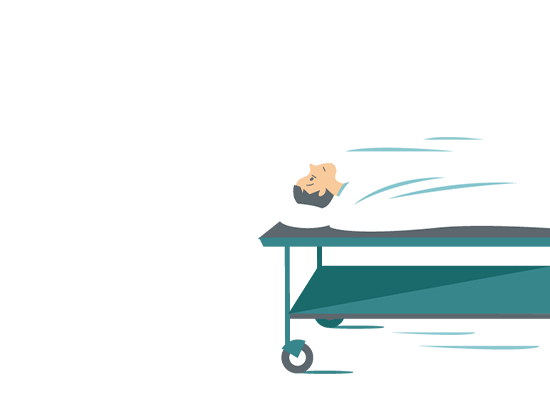

Introduction of NHS charges
In 1951 the NHS, which was built on such good intentions, was struggling to provide everything to everyone. Due to these challenges, they introduced charges for prescriptions, dental services and glasses — charges that still apply for most of us today.






We adapted to support the NHS and created an extended scheme of general benefits in 1956, becoming the innovator of the Health Cash Plan.
In a short space of time, the healthcare landscape had changed beyond recognition and only a fraction of the previously abundant contributory schemes kept their doors open after the NHS was introduced — and we’re proud to say that we were one of them.
A story worthy of the big screen
Royal Hospital -
ward film screening
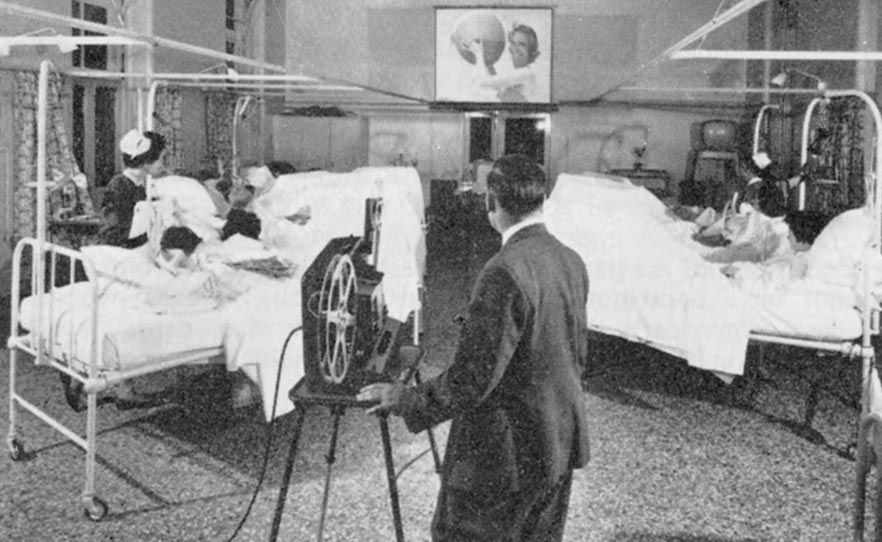
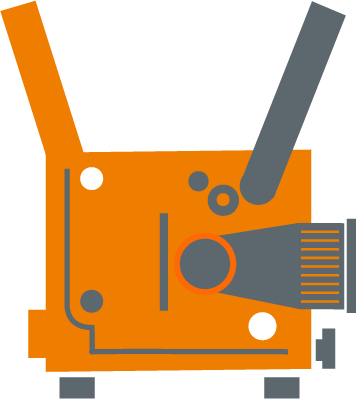




In 1951, we took on a starring role with the ‘Hospital Cinema Service’, providing patients at the city’s hospitals with a cinema. We showed full-length feature films, newsreels and shorts to help raise spirits and entertain patients.









New beginnings
On 14th October 1965, we established the Sheffield and District Hospitals Services Charitable Fund. Its objective was to donate annual funds for the purchase and repairs of equipment in local hospitals.



We’re extremely proud to have donated over
since 1965 to local and national hospitals and charities that support people’s health and wellbeing.
Charitable Trust
Take a look at who we’ve helped and the impact we’ve made.
More change was on the horizon. Due to the rapid expansion of the contributory scheme, we moved into a purpose-built office called Westfield House on the 7th April 1973.
Moving to our new address was followed by a change in our name and in 1974 we become Westfield Contributory Health Scheme to mirror our new direction.
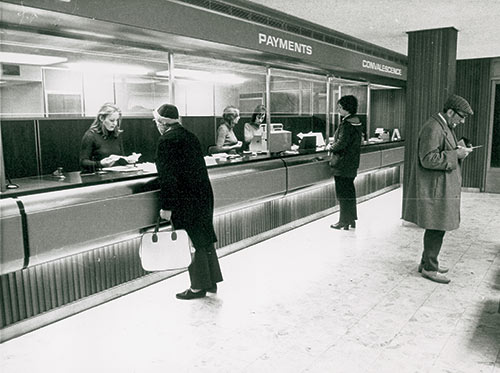
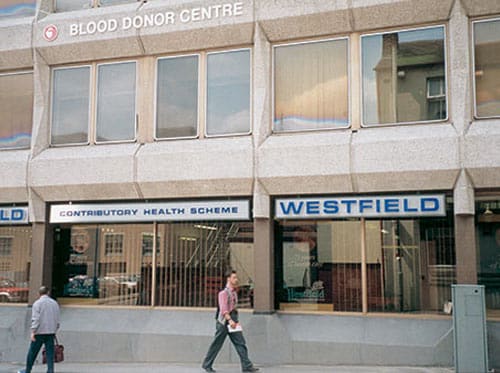
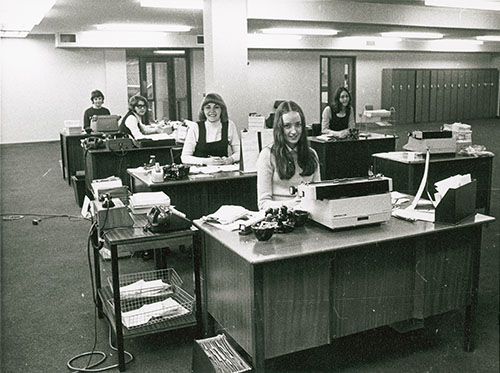
Capturing the Health Cash Plan market

In 1999, we became the pioneers of the corporate paid Health Cash Plan. This pivotal change to the market resulted in employers being able to provide their hard working staff with cashback on essential healthcare and access to valuable health and wellbeing services, all contributing to the business-to-business growth of the Health Cash Plan market which we operate in today.

We launched our consumer Health Cash Plan to the market in 2000
We also became the first provider to launch a corporate Health Cash Plan with MRI, CT and PET scanning benefits and the first online flexible quoting system. This allowed employers to create a bespoke corporate Health Cash Plan which was tailored to their needs within minutes - a market first and something we’re very proud of.
We launched our consumer Health Cash Plan to the market in 2000

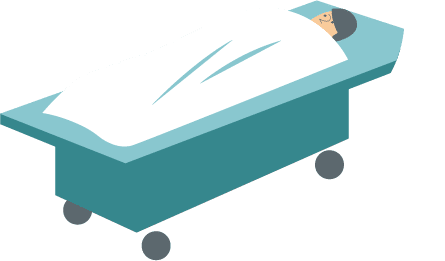
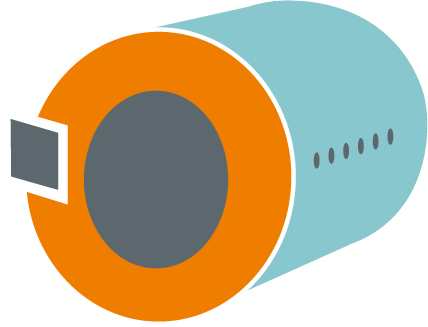
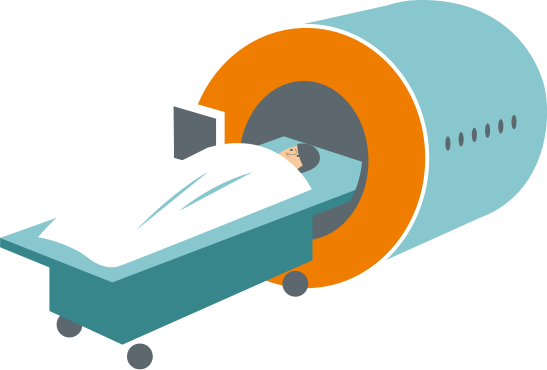

In 2008 we were honoured to become the headline sponsor of the British Transplant Games, an annual event that brings together the transplant community to celebrate the gift of life and raise awareness of organ donation.

Before our sponsorship of the Games, there were only 15.1 million registered donors in the UK. Today, with support from Westfield Health and other campaigners, that number has grown to 26.1 million.
Westfield Health’s plans for the future
August 2016 saw us move into new purpose-built offices in the heart of the city. This has played an important role in cementing our ongoing commitment to the wellbeing of our staff, facilitating our growth, and delivering health and wellbeing initiatives to the community.
Our vision
David Capper was appointed CEO of Westfield Health in 2018 and shares his thoughts on the future and vision of the company.
We have formed new and exciting partnerships with world-leading organisations to increase our health and wellbeing knowledge, inform product development and deliver our promise of making a healthy difference to people and the communities in which they live and work.
We’re academically evaluating our health and wellbeing solutions to create real changes in the health and wellbeing of workforces, individuals and communities, supporting the NHS by preventing illness.

We’ve adapted to change and evolved to meet our customers’ ever-changing needs, and we can’t wait to see what the next 100 years have in store.








